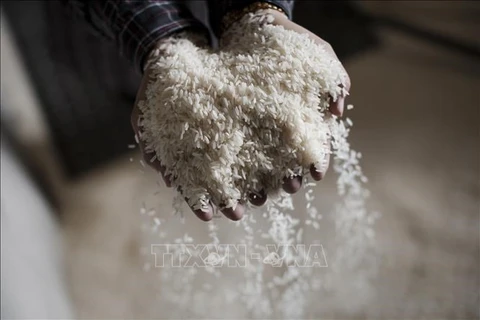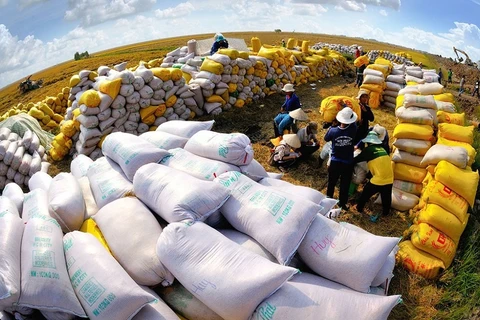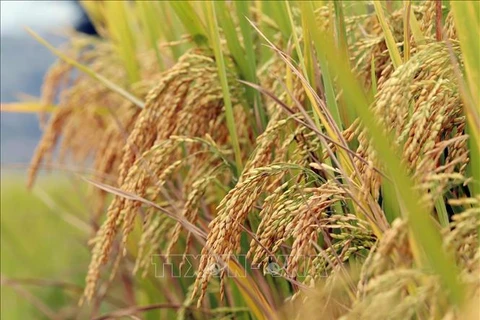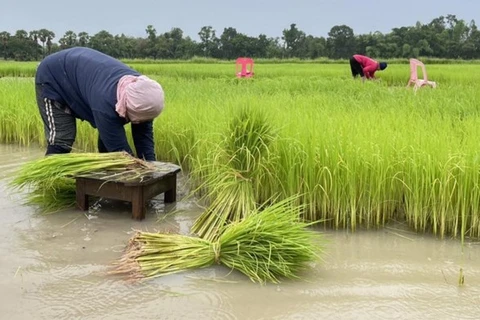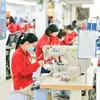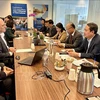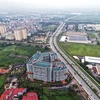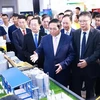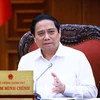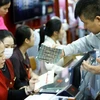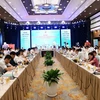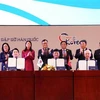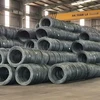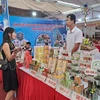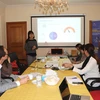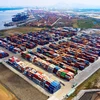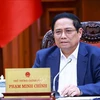Hanoi (VNS/VNA) - In line with the 2024 plan, Indonesia was reportedly set to import approximately 3 million tonnes of rice, nearly matching the Philippines' planned import of Vietnamese rice, which will make Indonesia one of the world's largest rice importers and a key customer for the Vietnamese rice industry.
In January, the Indonesian National Logistics Agency (Perusahaan Umum BULOG) initiated a tender to import 500,000 tonnes of rice to bolster the country's food reserves. By January 30, BULOG completed the bidding process, with Vietnam as the winner of eight out of 17 packages, distributed among five companies.
According to BULOG, three major Vietnamese companies secured two lots each, including Loc Troi Group Joint Stock Company (LTG) winning lots 8 and 14, Northern Food Corporation (Vinafood 1) taking lots 15 and 16, and Southern Food Corporation (Vinafood 2) obtained lots 3 and 9.
The remaining successful bidders were Kien Giang Import-Export Joint Stock Company, clinching lot 12, and Phat Tai Food Limited Company securing lot 11. Notably, Vietnam stood out as the only country with multiple companies participating and securing bids in substantial quantities (more than two lots). The sole Singaporean trading company R&S Trader PTE secured lots 10, 13, and 17.
The Vietnam Customs General Department data revealed Indonesia surpassed China to become Vietnam's second-largest rice export market with 1.16 million tonnes, totalling 640 million USD, a significant 877-992% increase compared to 2023.
Industry experts said the recently concluded 500,000-tonne rice tender with Vietnamese companies winning approximately 2/3 of the quantity signalled a positive outlook for a successful harvest post-Lunar New Year.
The latest data from the Vietnam Food Association (VFA) for January 2024 indicates that despite minor fluctuations, the country's rice export prices decreased by about 11 USD/tonne compared to the end of 2023, with late January 2024 data seeing the export prices of standard 5% broken rice at 642 USD/tonne.
At this price, Vietnam's 5% broken rice is currently around 13 USD/tonne lower than the equivalent grade from Thailand (according to the Thai Rice Exporters Association - TREA, Thailand's standard 5% broken rice is priced at 655 USD/tonne). In comparison to Pakistan, Vietnam's 5% broken rice is approximately 4 USD/tonne higher, with the current price in Pakistan at 638 USD/tonne.
Industry insiders said the current export prices of Vietnamese rice aren't high due to limited available stock, with transactions expected to resume at the end of February or early March. During this period, businesses focus on the domestic market and prepare for the Tet holiday, refraining from actively entering new contracts.
Updates on domestic rice prices on February 1 in various locations in the Mekong Delta region reveal that rice prices have been maintaining elevated levels. Key figures include IR 504 rice at 9,000 – 9,200 VND/kg; Fragrant rice 8 around 9,600 – 9,700 VND/kg; OM 18 at 9,600 – 9,800 VND/kg; OM 5451 at 9,300 - 9,500 VND/kg; Nang Hoa 9 remaining stable at 9,400 – 9,600 VND/kg; and OM 380 rice fluctuating around 8,600 - 8,800 VND/kg.
Regarding rice prices, a slight increase of 50-100 VND/kg compared to yesterday is noted. Currently, the price of IR 504 NL rice is at 12,500-12,600 VND/kg; while TP IR 504 rice is at 14,650-14,750 VND/kg./.
In January, the Indonesian National Logistics Agency (Perusahaan Umum BULOG) initiated a tender to import 500,000 tonnes of rice to bolster the country's food reserves. By January 30, BULOG completed the bidding process, with Vietnam as the winner of eight out of 17 packages, distributed among five companies.
According to BULOG, three major Vietnamese companies secured two lots each, including Loc Troi Group Joint Stock Company (LTG) winning lots 8 and 14, Northern Food Corporation (Vinafood 1) taking lots 15 and 16, and Southern Food Corporation (Vinafood 2) obtained lots 3 and 9.
The remaining successful bidders were Kien Giang Import-Export Joint Stock Company, clinching lot 12, and Phat Tai Food Limited Company securing lot 11. Notably, Vietnam stood out as the only country with multiple companies participating and securing bids in substantial quantities (more than two lots). The sole Singaporean trading company R&S Trader PTE secured lots 10, 13, and 17.
The Vietnam Customs General Department data revealed Indonesia surpassed China to become Vietnam's second-largest rice export market with 1.16 million tonnes, totalling 640 million USD, a significant 877-992% increase compared to 2023.
Industry experts said the recently concluded 500,000-tonne rice tender with Vietnamese companies winning approximately 2/3 of the quantity signalled a positive outlook for a successful harvest post-Lunar New Year.
The latest data from the Vietnam Food Association (VFA) for January 2024 indicates that despite minor fluctuations, the country's rice export prices decreased by about 11 USD/tonne compared to the end of 2023, with late January 2024 data seeing the export prices of standard 5% broken rice at 642 USD/tonne.
At this price, Vietnam's 5% broken rice is currently around 13 USD/tonne lower than the equivalent grade from Thailand (according to the Thai Rice Exporters Association - TREA, Thailand's standard 5% broken rice is priced at 655 USD/tonne). In comparison to Pakistan, Vietnam's 5% broken rice is approximately 4 USD/tonne higher, with the current price in Pakistan at 638 USD/tonne.
Industry insiders said the current export prices of Vietnamese rice aren't high due to limited available stock, with transactions expected to resume at the end of February or early March. During this period, businesses focus on the domestic market and prepare for the Tet holiday, refraining from actively entering new contracts.
Updates on domestic rice prices on February 1 in various locations in the Mekong Delta region reveal that rice prices have been maintaining elevated levels. Key figures include IR 504 rice at 9,000 – 9,200 VND/kg; Fragrant rice 8 around 9,600 – 9,700 VND/kg; OM 18 at 9,600 – 9,800 VND/kg; OM 5451 at 9,300 - 9,500 VND/kg; Nang Hoa 9 remaining stable at 9,400 – 9,600 VND/kg; and OM 380 rice fluctuating around 8,600 - 8,800 VND/kg.
Regarding rice prices, a slight increase of 50-100 VND/kg compared to yesterday is noted. Currently, the price of IR 504 NL rice is at 12,500-12,600 VND/kg; while TP IR 504 rice is at 14,650-14,750 VND/kg./.
VNA

